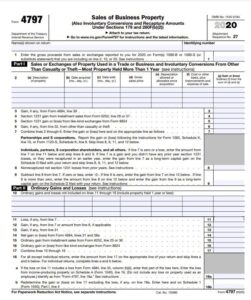Tax Implications of a Real Estate Transfer
There are many things to consider before buying or selling a home, but one of the most significant is the taxes that may be applied. These include property and capital gains taxes, among others. Whether you’re a first-time homebuyer or someone who has owned a home for years, the potential tax implications can be confusing. Thankfully, we’ve pored through every state legislature code to break down the specifics of each tax – including how much you’ll owe, who pays it, and any additional local taxes you should be aware of.
These taxes are a recurring revenue source for local governments. They are paid by the owner as part of their monthly payments and are typically deductible against income tax. However, real estate transfer taxes are not deductible against income and are instead assessed at the time of sale.

In addition to being a tax, real estate transfer taxes also increase the “cost basis” of the property sold, which reduces future capital gains taxes on the sale of that property. It’s important to understand how real estate transfer taxes affect your tax situation when you’re considering selling a home, so you can make the best decisions about your purchase or sale.
What Are the Tax Implications of a Real Estate Transfer?
A gift of real estate to a loved one can result in unexpected tax consequences, depending on how the recipient plans to use or sell the property. This is why it’s a good idea to talk with your tax professional or an attorney about the potential gift and inheritance taxes that may apply to your real estate transaction.
A home is a valuable asset, and if you have the intention of selling it, it can be worth more than what you paid for it. Generally, any amount of money over and above the original purchase price is considered taxable.
Those who have purchased their primary residence will not pay any capital gains tax on the sale of the house, as long as they live in the home for at least two out of five years. Additionally, the first $250,000 or $500,000 in capital gains when you sell your primary home is not taxable.
When you give someone a home, it is not uncommon to assume that they will keep it for their lifetime. However, this can be a mistake, especially if the recipient will only live in the home for a short period of time. This could cause a substantial capital gains tax bill.
There are several ways you can avoid paying a capital gains tax when you sell your home, and if you’re considering giving a property to another person, it’s wise to speak with a qualified tax expert to determine which way is best for your individual situation.
The National Association of Realtors (NAR) says that taxing real estate is a poor revenue source for local governments, and they have proposed lowering or waiving these fees for seniors, the disabled, low-income households, and first-time homebuyers. They also say these fees are a burden on those who move often, and that they negatively impact housing opportunities overall.


